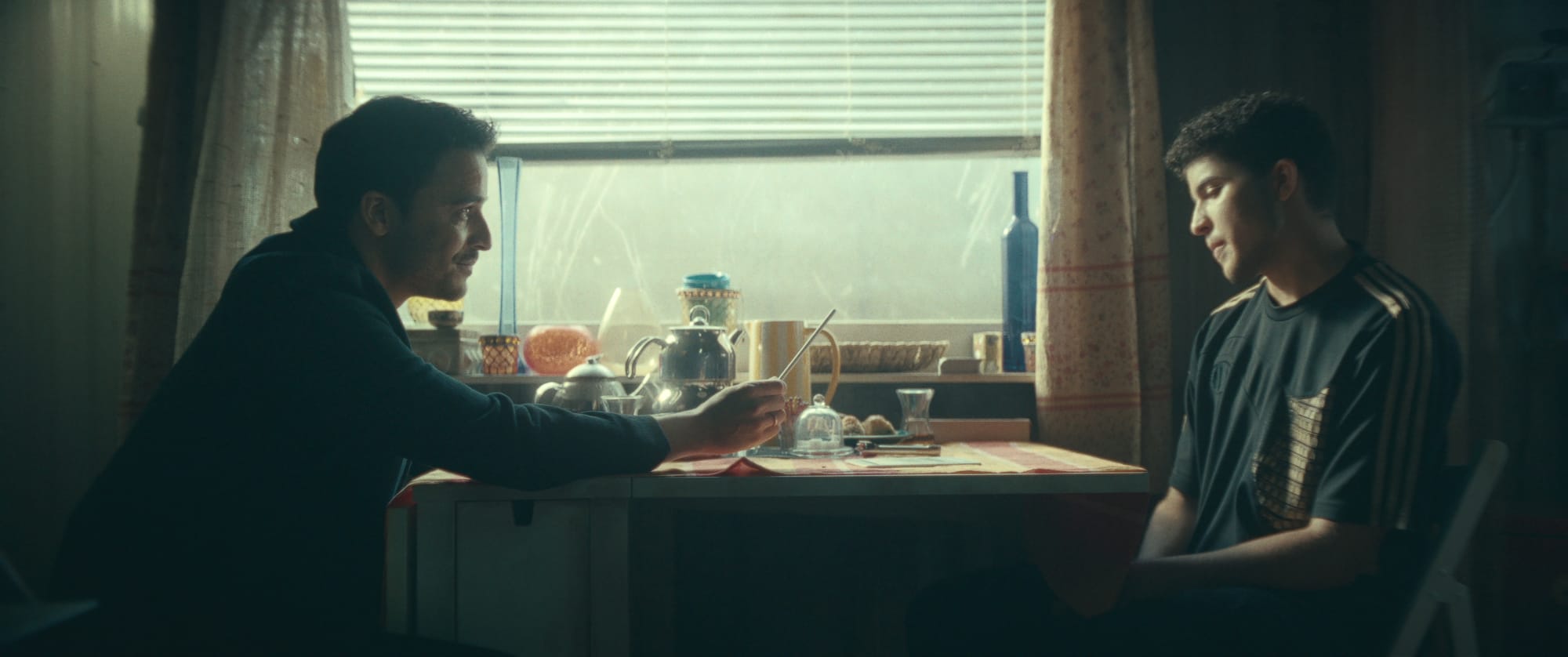Paradise Leaves a Tainted Impression
How much pain and injustice must one suffer to become radicalized?

How much pain and injustice must one suffer to become radicalized? I’m not talking about Twitter liberals, but actual political radicalization. Radicalization, by definition, requires action: war-time Maoism, Extinction Rebellion (XR), the Jenin Brigade. Netflix, following last year’s French revolution film Athena by Romain Gavras, attempts to return to this same question in the German sci-fi film Paradise. And like its French predecessor, Boris Kunz’s first feature in more than a decade concludes with a familiar whiff of neo-liberal problematics and solutions (accompanied by less flashy filmmaking than Gavras’s film).
The premise is instantly intriguing: the ultra-bad biotech company AEON has innovated a way to transfer years from one’s life expectancy to another. Max (Kostja Ullmann) is the “donor broker” of the year—he’s the very best at negotiating lives from his customers, convincing the poor to sell their years to the rich. The very soul-crushing spirit of capitalism is made visceral. In my favorite clever bit, a television news report informs its viewers that the rich successfully teamed together to solve the climate crisis and stabilize the environment after recognizing they will be here for quite a bit longer.
Max isn’t rich, though; he’s a willing member of the petite bourgeoisie at best, a blind instrument of the plutocracy. Financial disaster disrupts his life and he discovers that his wife put 40 years of her life as collateral on their apartment. In the face of the event, he responds with individualized, decisive, violent action. He becomes, for a moment, a man with one purpose: to return his wife’s life. The petite bourgeoisie has become a soldier of revolt, armed and ready to take down AEON.
Except, not really.
Continue reading at the Boston Hassle.